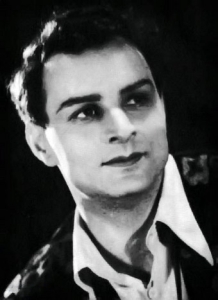His parents moved to Leningrad when he was still a boy. After finishing school, he worked in the electrical industry,
while studying voice in evening classes – just for fun, without professional ambitions. On his job, he passed some
additional training, too, and became an engineer.
In 1936, he won an amateur singers competition, which resulted in further studies with Aleksandr Davydov at the voice academy of the Kirov Theater. In 1937, he sang for the first time on the radio, and
soon also on stage.
In 1939, he definitely decided to be a singer instead of an engineer, and made his debut with the operetta
theater of the Leningrad district. 1941 to 1945, he was a member of the Karelian Musical Theater in Petrosavodsk; since that
theater toured the USSR during WWII, Ruban became known well beyond Petrosavodsk. Consequently, he was hired by the Moscow
Operetta Theater after the war; he was to stay until 1959. The last years of his career were spent with concert tours, and with
TV work – increasingly as a director, not only on TV but also on stage.
He sang exclusively operetta; both classical Western works (Zarewitsch, Danilo, Eisenstein, Radjami in Bajadere, Raoul in Das Veilchen vom
Montmartre, Edwin in Csárdásfürstin, Tassilo in Gräfin Mariza, Piquillo in La Périchole, the title
role in Planquette's Rip van Winkle, Marquis in Les cloches de Corneville) and Soviet operetta (Trembita and Bespokojnoe schastye
by Miljutin, Samoe zavetnoe by Solovyov-Sedoj, Syn klouna, Volnyj veter and Zolotaja dolina by Dunajevskij, Moskva Cherjomushki
by Shostakovich); he even appeared in unlikely works for the Soviet stage like Rose-Marie (by Friml) and Oklahoma (by Rogers and
Hammerstein).
Reference and picture source
Many thanks to Igor Milner for the recording.
